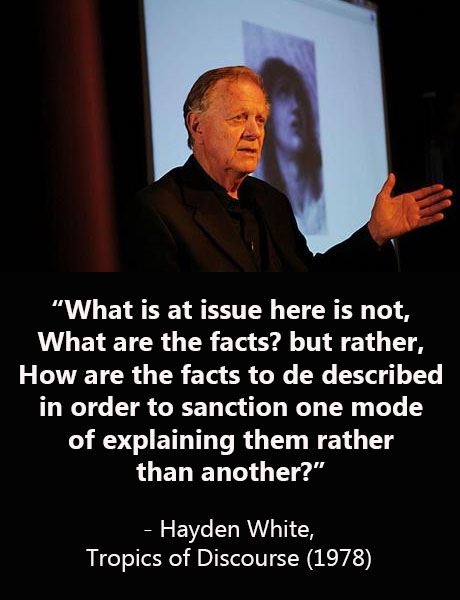 Read more (PDF).
Read more (PDF).
On the Spot with Russell McCutcheon
“On the Spot” backs members of Culture on the Edge into a corner to talk about their backgrounds, their ongoing work, and what might be gained by an alternative understanding of how identity works.
 Q: Russell, what types of theoretical and methodological shifts have your work taken throughout the years as it pertains to the category of religion?
Q: Russell, what types of theoretical and methodological shifts have your work taken throughout the years as it pertains to the category of religion?
A: Much as our initiative, here at Culture on the Edge, makes apparent, I think that it’s tougher work to read an author in his or her historical setting and thus far easier to generalize across what are in fact discrete, situationally-specific works that each engaged discrete issues. I say this in answer to your question because—at least judging from my own point of view, with regard to how I see my own work—I think that my early work is far different from what I’ve been doing these past few years. Continue reading “On the Spot with Russell McCutcheon”
Critics Not Critical Caretakers
 Interested in an interview with Russell McCutcheon,
Interested in an interview with Russell McCutcheon,
on the topic of critics and caretakers?
“I’m Rubber, You’re Glue…”
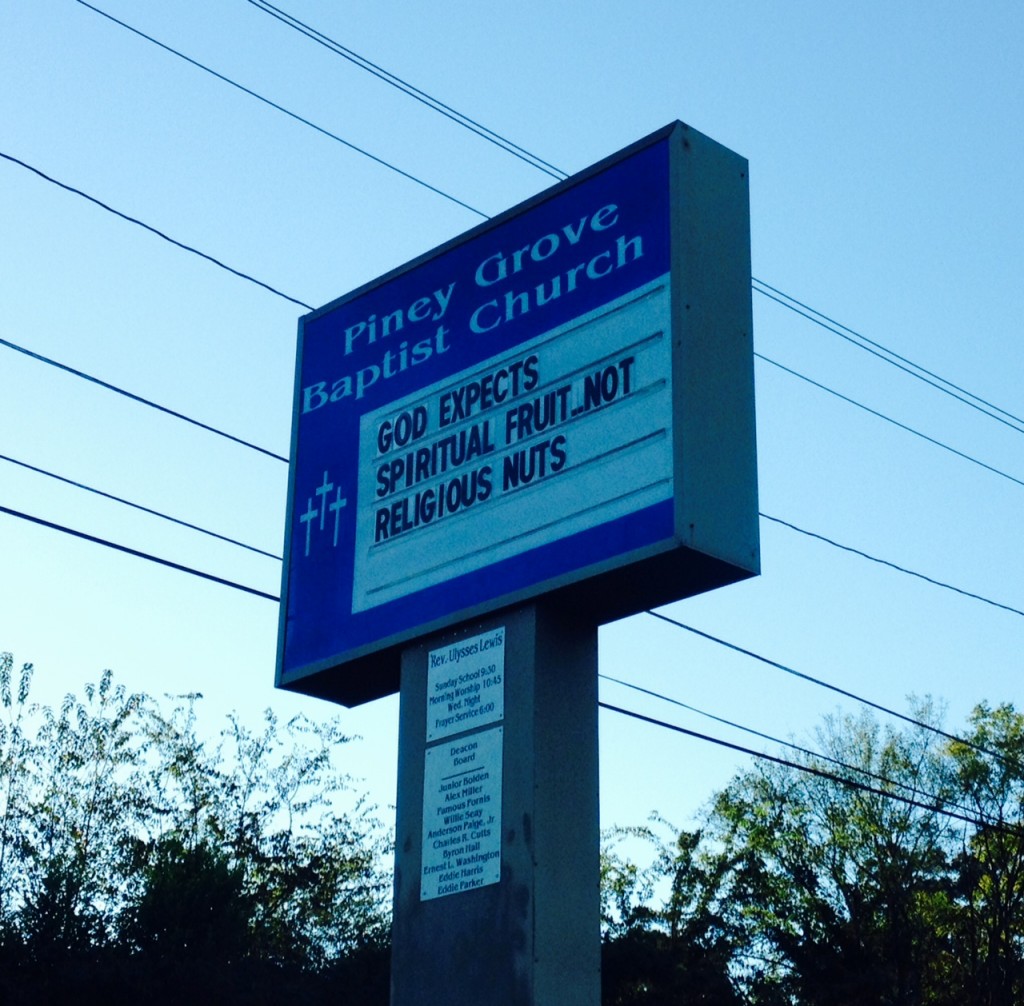 If only scholars of religion understood what the good people of Piney Grove Baptist Church apparently do: the words “spiritual” and “religious” refer to nothing but each other, making them handy rhetorical terms that help to create/legitimize conditions of affinity and estrangement.
If only scholars of religion understood what the good people of Piney Grove Baptist Church apparently do: the words “spiritual” and “religious” refer to nothing but each other, making them handy rhetorical terms that help to create/legitimize conditions of affinity and estrangement.
So my advice is to go re-read your Durkheim — god-talk is group-talk — and quit trying to figure out the trick to defining each of these words in the right way, as if one names something in the world that’s uniquely different from what the other names. Instead, start seeing them as rather less ethereal than many do, as equivalent to kids in the schoolyard sorting out issues of rank and place by calling each other names — all-purpose names that, sooner or later, bounce off me and stick to you.
The Natural Look
 So opened The National Post‘s September 10, 2013, article on the Canadian province of Quebec’s recent (and for some, rather controversial) Charter of Quebec Values, along with the accompanying picture of the Premiere, Pauline Marois, joined by Bernard Drainville, the Minister Responsible for Democratic Institutions and Active Citizenship. Continue reading “The Natural Look”
So opened The National Post‘s September 10, 2013, article on the Canadian province of Quebec’s recent (and for some, rather controversial) Charter of Quebec Values, along with the accompanying picture of the Premiere, Pauline Marois, joined by Bernard Drainville, the Minister Responsible for Democratic Institutions and Active Citizenship. Continue reading “The Natural Look”
The Logic of Appropriation
 This morning I came across Dennis LoRusso’s interesting post on how the language and logic of appropriation ought itself to be our object of study. Have you read it? No? Well, you should. For it nicely represents the sort of shift we’re trying to make here at Culture on the Edge. Continue reading “The Logic of Appropriation”
This morning I came across Dennis LoRusso’s interesting post on how the language and logic of appropriation ought itself to be our object of study. Have you read it? No? Well, you should. For it nicely represents the sort of shift we’re trying to make here at Culture on the Edge. Continue reading “The Logic of Appropriation”
On Making Meaning
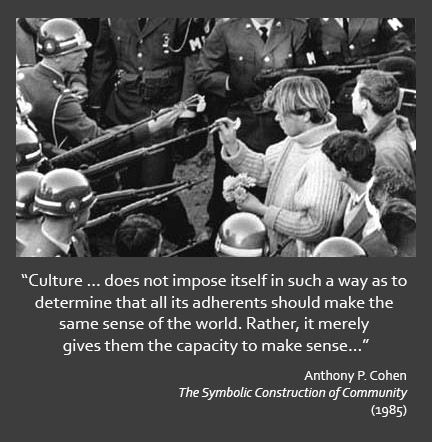 Read more.
Read more.
(Click image to enlarge.)
How Deep is Your Love?
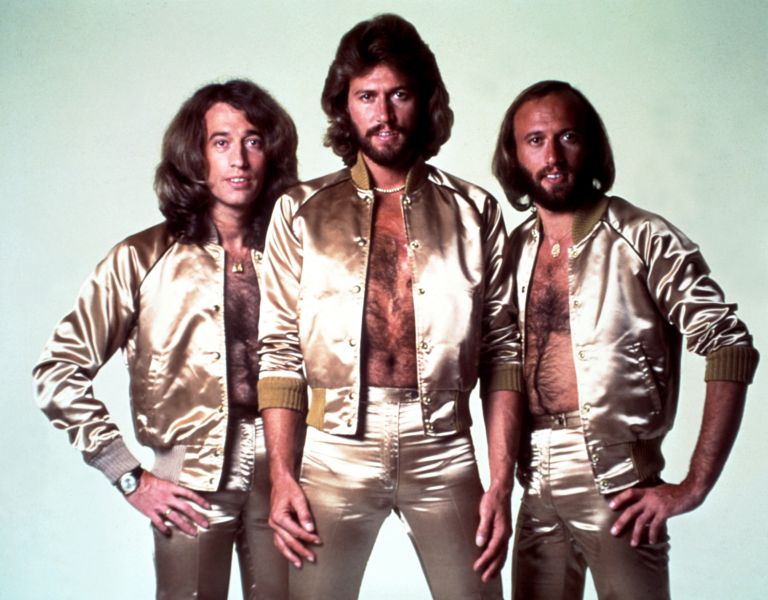
(You really should play the song below while you read this post. For the full audio-visual experience.)
A routine turn of phrase in the English language is to enhance a claim by using the metaphor of depth — thoughts can be deep, the hero looks deeply into his love’s eyes, or “deep down, I feel that…”. Conversely, of course, a lack of such depth signifies insincerity and probably insufficient intelligence — after all, “Shallow Hal” was a movie all about overcoming a preoccupation with surface appearances, learning instead to see true, “inner beauty.” Continue reading “How Deep is Your Love?”
On Grammar
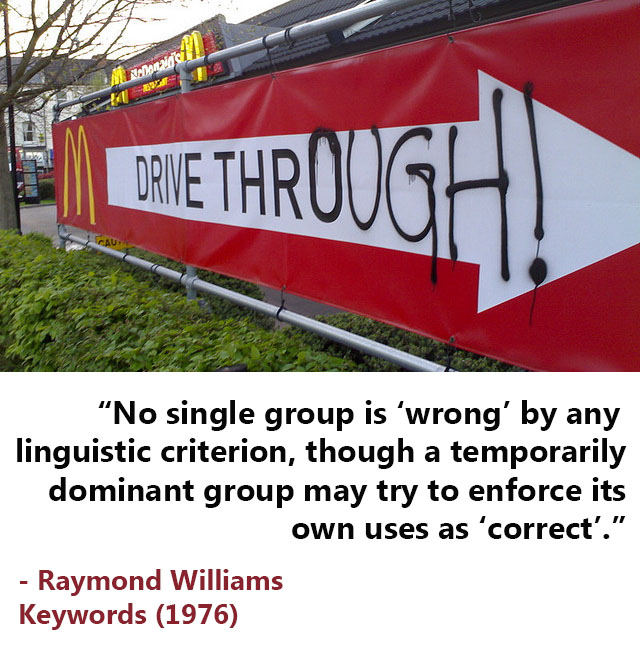 Read more.
Read more.
The Violence of Mistaken Identities
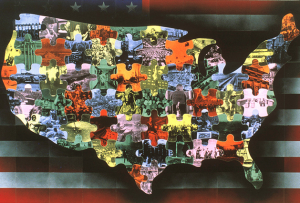 Two recent incidents of mistaken identity in the United States have garnered significant attention. The crowning of Nina Davuluri as Miss America, the first Indian-American to win that pageant, spurred some people to tweet their displeasure, associating her with Arabs and terrorists and questioning if she is American. In a more physically violent incident, some men attacked Prabhjot Singh near his home in New York City, taunting him as “Osama” and “terrorist,” apparently because of the turban he wears as a part of his expression of Sikh identity. Continue reading “The Violence of Mistaken Identities”
Two recent incidents of mistaken identity in the United States have garnered significant attention. The crowning of Nina Davuluri as Miss America, the first Indian-American to win that pageant, spurred some people to tweet their displeasure, associating her with Arabs and terrorists and questioning if she is American. In a more physically violent incident, some men attacked Prabhjot Singh near his home in New York City, taunting him as “Osama” and “terrorist,” apparently because of the turban he wears as a part of his expression of Sikh identity. Continue reading “The Violence of Mistaken Identities”
